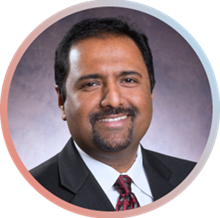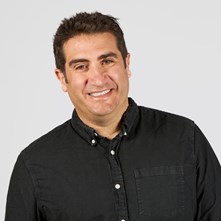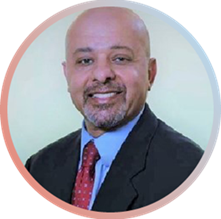RISE West 2021 will bring together senior leaders from Medicare Advantage health plans, commercial marketplace sponsors, Part D health plans, providers groups, pharmacy benefit managers, and accountable care organizations to discuss the hot topics facing the industry. We talked to four of the 50 speakers about their sessions to learn what attendees can expect at this year’s hybrid event, which will take place live in Colorado Springs and virtually via livestream August 30-September 2.
Federal policies that impact managed care
One of the highlights of RISE West each year is an industry roundtable discussion on the current administration’s priorities and what proposed and final policies will mean for Medicare Advantage, Medicaid, and the Affordable Care Act marketplace.
This year’s panel will be moderated by Sean Creighton, vice president, risk adjustment policy, Humana. Panelists will include Marc Goldwein, senior vice president and senior policy director, Committee for a Responsible Federal Budget; Mikal Sutton, managing director, Medicaid policy, Blue Cross Blue Shield Association; and David Meyer, a member of the RISE Risk Adjustment Policy Committee.
RELATED: Introducing RISE Radio: First podcast episode features risk adjustment experts on legislative and regulatory issues MA plans need to watch in 2021
Attendees can expect discussion to focus on budget and reconciliation packages, Medicaid expansion, fiscal policy, and the Biden’s administration’s goals for addressing social determinants of health (SDoH), health disparities, and health equity. Panelists will also likely address drug costs and issues specific to Medicare Advantage plans, such as coding intensity, RADV audits, rate setting, Star ratings, and supplemental benefits.
Legal insights in Medicare fraud and RADV audit mistakes

The compliance and audit track will feature sessions on legal insights, including a discussion on successful whisteblower-initiated False Claims Act cases alleging risk adjustment fraud.
Mary A. Inman, a partner in the whistleblower practice group at Constantine Cannon, will offer lessons learned from five whistleblower-initiated False Claims Act cases that her firm has handled, two of which have settled successfully and three of which are currently being litigated. The United States government has opted to join all five cases.
“Our firm has the distinction of representing the whistleblowers behind the Government’s most significant risk adjustment cases against major players in the Medicare Advantage industry. Our 13-plus years of experience working on these cases has given us an unparalleled depth of knowledge of risk adjustment fraud and its many permutations and we are keen to share the learning that these cases have generated thus far,” she said.
Here’s a look at some of the case examples Inman will discuss:
- The Government’s case against UnitedHealth Group (UHG), the country’s largest heath insurer and largest operator of Medicare Advantage plans, for billions of dollars in damages as initiated by whistleblower Benjamin Poehling, a former employee in the finance department of UHG’s Medicare and Retirement Division. The litigation has been going on for more than four years and is being closely watched by the industry. Inman said one of the main risk adjustment schemes alleged in the case focuses on UHG’s performance of a “one way look” into patient medical records for additional risk-adjusting diagnoses rather than “looking both ways” by also reviewing for previously submitted, unsupported diagnoses and deleting those invalid claims.
- Another case that the government is still actively prosecuting is whistleblower Kathy Ormsby’s case v. Sutter Health, LLC & Palo Alto Medical Foundation (PAMF). Ormsby was PAMF’s risk adjustment factor project manager and coding manager. The complaint alleges that the defendants inflated the number and severity of the diagnoses to capture the risk adjustment multiplier and get Medicare Advantage payments that they weren’t entitled to.
- The settlement of whistleblower David Sewell’s case against Freedom Health Optimum Healthcare and Sidd Pagidipati, Freedom’s former chief operating officer for $32.5 million, $16.7 million of which related to allegations of risk adjustment fraud. The crux of the Government’s and whistleblower’s joint case was Freedom’s alleged practice of hiring and using auditors to review providers’ medical records during the reconciliation period and submit incorrect or unsubstantiated diagnosis codes that were not previously reported and thereby inflate risk scores.
- Settlement of whistleblower Teresa Ross’s case against Group Health Cooperative, now Kaiser Foundation Health Plan of Washington, for $6.375 million. The allegations of the case: Group Health Cooperative hired vendor DxID on a contingency fee basis to help GHC review medical records for missed risk adjustment diagnoses. The vendor was allegedly overly aggressive and Ross, a former employee of Group Health Cooperative, informed GHC that the diagnoses were improperly inflated. Ross’s whistleblower case continues as to allegations against defendants DxID and Independent Health, and the Government has filed a motion to intervene as to those two remaining defendants.
- Although Inman can’t currently discuss the specifics of the firm’s fifth whistleblower case, she said that by the time she presents at RISE West, the case is expected to be unsealed when the federal government chooses to intervene and take over the matter. That case also involves a big-name medical health insurance plan, she said.
RELATED: Justice Department joins MA fraud lawsuit against Kaiser Permanente
Provider engagement
 The need for collaboration among payers and providers is crucial as the industry moves toward value-based care, said Jeslie Jacob, divisional vice president, provider performance, provider analytics, reporting and connectivity, Blue Cross and Blue Shield of Illinois.
The need for collaboration among payers and providers is crucial as the industry moves toward value-based care, said Jeslie Jacob, divisional vice president, provider performance, provider analytics, reporting and connectivity, Blue Cross and Blue Shield of Illinois.
“I believe that part of the reason why health care is the way it is today is because traditionally the payer world and the provider world have not effectively collaborated,” said Jacob, who will sit on the RISE West panel, Payer Experiences in Provider Engagement–What Works and What Doesn’t, a session offered to both in-person and virtual attendees on Wednesday, Sept. 1
The panel discussion is one of several sessions that RISE West 2021 will devote to provider engagement. The topic will be addressed during a half-day in-person preconference workshop on Tuesday, Aug. 31 as well as the provider engagement track on Wednesday, Sept. 1.
RELATED: Provider/payer collaboration imperative for improved patient care
“As the industry continues to move toward value-based care, which I firmly believe is how we are going to be able to transform to an outcome-based system, I think most groups realize the importance of collaboration in reducing cost and improving quality,” he said.
Collaboration means listening to one another, finding common ground, and working toward meeting somewhere in the middle, according to Jacob. That requires going to the basics–that is, understanding what both groups mean when they refer to a “provider,” said Jacob, who worked on the provider side of the business for years before joining Blue Cross and Blue Shield of Illinois two and a half years ago.
Jacob and the other panelists will share strategies that have worked for them—and what hasn’t—during the conference session. But Jacob said one tactic he is sure doesn’t work is a “one-size-fits-all approach.”
“Provider organizations are all different. You’ve got large integrated health systems that have high complexity, and we also have small, independent provider groups. That right there is something we need to be cognizant of. Within each provider entity, there are different stakeholders that we need to communicate with differently,” he said, adding that it’s important not to ignore those nuances.
Read the full interview with Jacob’s insights into payer-provider engagement and collaboration.
Telehealth/virtual primary care
 While many providers had to quickly pivot and embrace telehealth when COVID-19 prevented most in-person encounters, it was business as usual for Andy Ellner, M.D., and the virtual care team at Firefly Health.
While many providers had to quickly pivot and embrace telehealth when COVID-19 prevented most in-person encounters, it was business as usual for Andy Ellner, M.D., and the virtual care team at Firefly Health.
Firefly Health, which Ellner cofounded in 2016, is a virtual primary care service based in Watertown, Mass. that provides members with a designated care team who offer continuous, evidence-based virtual coaching and support. The virtual team includes a physician, nurse practitioner, a health guide or coach, and a licensed therapist who are accessible 24/7. Their mission: to deliver health care at half the price but that is twice as good clinically and emotionally.
“That ongoing relationship affords us the opportunity to really be helpful and connected when someone gets really sick and that’s where cost in traditional models of care starts to accrue because people bounce around to different specialists, hospitals, and emergency rooms. We are able to stay connected to folks and pull specialists in when needed to ensure care is coordinated and everything is followed up on,” said Ellner, who will be a panelist at RISE West’s track session on current and future telehealth efforts.
Firefly’s results have been significant. “Right now, we are seeing in the range of 20 to 30 percent lower total expenditure on health care in the members we serve,” said Ellner. Members are also extremely satisfied. The organization boasts an average net promoter score in the 80s, a figure that surpasses Apple and Netflix. Most health care clinics and health plans’ net promoter scores are “in the zeros or 10s,” he said. In addition, the chronic condition outcomes of members with hypertension and diabetes being under control is about 20 percentage points higher than the commercial average, according to Ellner.
Ellner believes the future of health care is in primary care-driven models that have a holistic, integrated approach. “I’d really encourage investment in approaches built around primary care and serving patients and families in their communities, rather than a large hospital-dominated systems. I think that’s where the future is and investing in types of infrastructure such as payment models that support this kind of innovation is going to be critical for plans that want to stay on the cutting edge.”
Read the full interview with Ellner’s insights about the future of telehealth.
Social determinants of health (SDoH) perspectives
T he first day of the main conference will feature a closing panel discussion on the impact of SDoH and actionable solutions.
he first day of the main conference will feature a closing panel discussion on the impact of SDoH and actionable solutions.
Leaders from health plans, health care providers, and community-based organizations will share their experiences in addressing SDoH. Among those leaders: Amir Sweha, M.D., chief medical officer, Hill Physicians Medical Group, who calls SDoH efforts a “work in progress” with stakeholders learning as they move forward.
The complete answer for how we address the issue is not clear yet,” he said. However, Sweha said that the medical group has determined three components that are essential to addressing SDoH. Stakeholders must:
- Identify the population that is in need
- Determine the available resources that will help address the gaps and needs
- Link the population to those resources
Sweha said that during the panel discussion he will provide examples of some successes the medical group has had with connecting patients to resources and the value of the community health advocates. But he will also talk about limitations in operations and how to mitigate them. Sweha said he is looking forward to hearing from the other panelists about their experiences as well as what other attendees have learned.
His message to those at the beginning of their SDoH journey: “Don’t be disappointed if you are not there yet or aren’t seeing significant outcomes yet. There is a lot of learning as we go,” he said.
RISE West 2021 will take place live in Colorado Springs and virtually via livestream August 30-September 2. To learn more, here are the links to the full agenda, list of speakers, and registration information.

